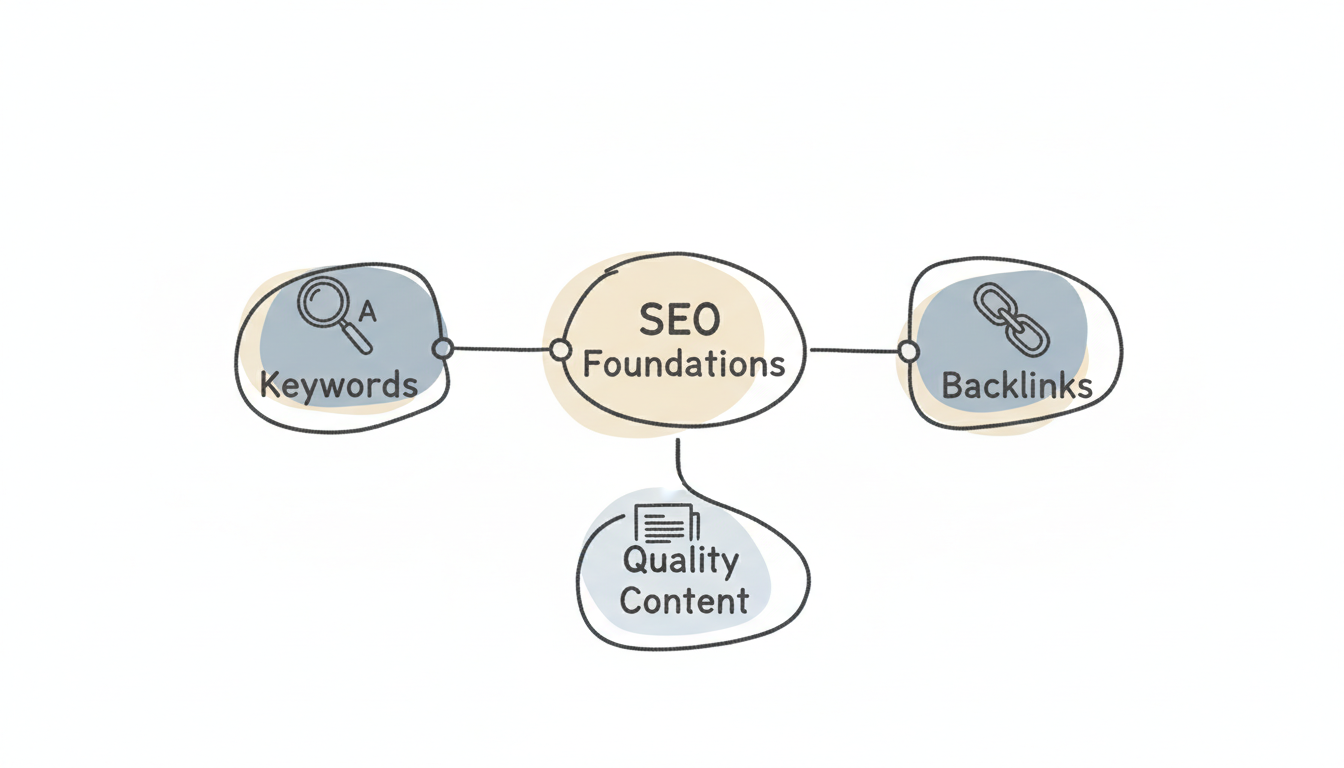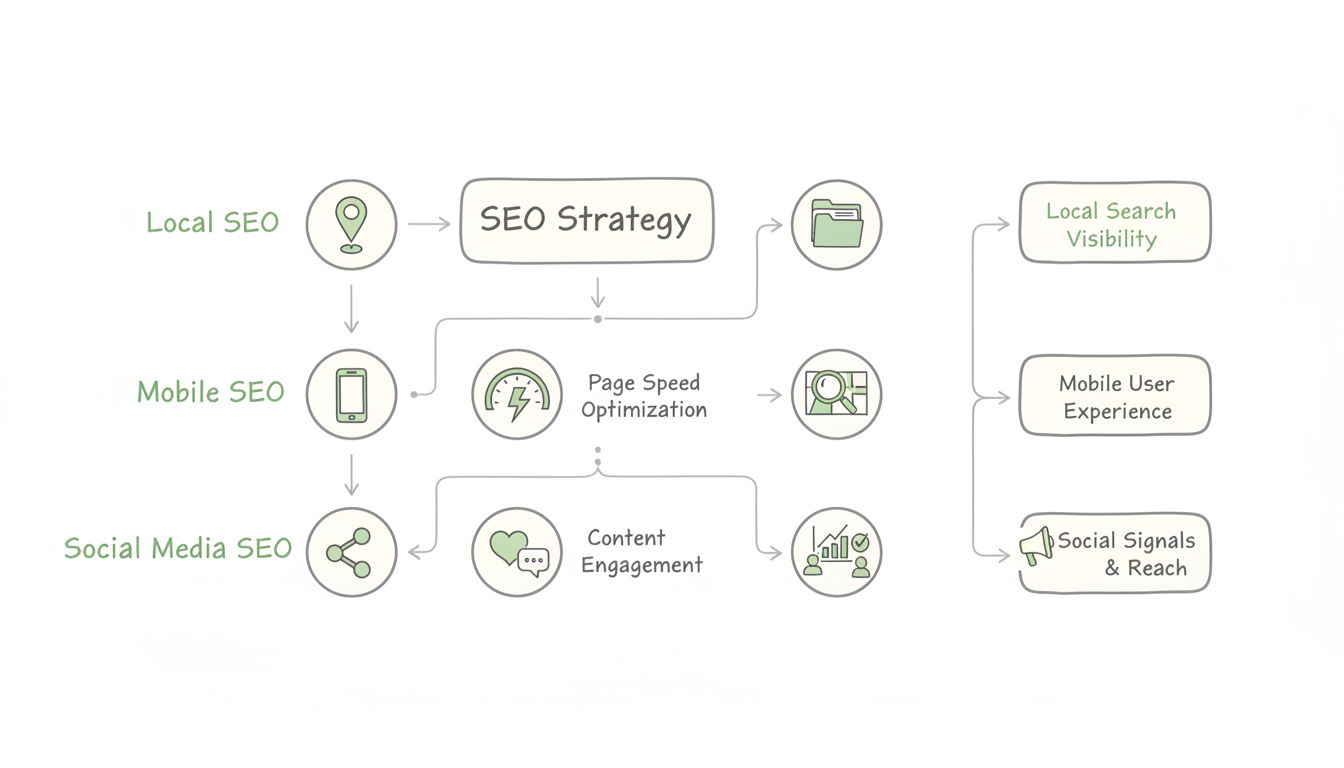In the digital age, having a strong online presence is crucial for the success of any startup. One of the most effective ways to increase visibility and attract organic traffic to your website is through search engine optimization (SEO). By optimizing your website for search engines, you can improve your chances of ranking higher in search results, reaching your target audience, and ultimately driving more conversions. In this article, we will explore the basics of SEO, its importance for startups, key elements to consider, effective strategies to implement, the best tools and resources available, and how to monitor and continuously improve your SEO performance.
Let's begin by demystifying what exactly SEO entails. SEO stands for search engine optimization, which refers to the process of optimizing your website and its content to improve its visibility and ranking on search engine results pages (SERPs). When users search for relevant keywords or phrases, search engines like Google aim to provide the most relevant and valuable results. By implementing SEO best practices, you can signal to search engines that your website is authoritative, trustworthy, and valuable, increasing your chances of appearing higher in the rankings.
Search engine optimization is a multifaceted discipline that involves a combination of technical and creative strategies. It encompasses a wide range of techniques and practices that aim to improve your website's visibility in organic (non-paid) search results. It involves both on-page and off-page optimization efforts, targeting various factors such as website structure, content quality, keywords, backlinks, and user experience.
SEO encompasses a wide range of techniques and strategies that aim to improve your website's visibility in organic search results. On-page optimization focuses on optimizing individual web pages to rank higher and earn more relevant traffic. This includes optimizing meta tags, headings, content, and images. Off-page optimization, on the other hand, involves activities outside of your website that can impact your search engine rankings. This includes building high-quality backlinks, social media marketing, and online reputation management.
Keyword research is an essential aspect of SEO. It involves identifying the keywords and phrases that your target audience is using to search for products or services similar to yours. By incorporating these keywords strategically into your website's content, you can increase your chances of ranking higher in search results.
For startups, establishing a strong online presence and attracting organic traffic can be challenging in a highly competitive landscape. This is where SEO comes in. By optimizing your website for search engines, you can increase your chances of being discovered by users who are actively searching for the products or services you offer.
Higher visibility leads to greater brand exposure, website traffic, and potential sales or conversions, all of which are fundamental for the growth and success of startups. SEO can help startups level the playing field and compete with more established competitors by driving targeted organic traffic to their websites.
In addition to driving organic traffic, SEO also helps in building brand credibility and trust. When your website appears on the first page of search results, users are more likely to perceive your brand as trustworthy and authoritative. This can have a positive impact on user engagement, conversion rates, and customer loyalty.
Furthermore, SEO is a cost-effective marketing strategy for startups. Unlike paid advertising, where you need to invest significant amounts of money to drive traffic to your website, SEO allows you to attract organic traffic without incurring additional costs. By investing time and effort in optimizing your website, you can achieve long-term results and sustainable growth.
In conclusion, SEO is a critical aspect of any startup's marketing strategy. By implementing SEO best practices, startups can increase their online visibility, attract targeted organic traffic, and establish themselves as credible and trustworthy brands in their respective industries.
Successful SEO implementation requires attention to multiple key elements. Let's explore some of the most important ones:
Keywords are the foundation of SEO. These are the words or phrases that users enter into search engines when looking for information or solutions. By conducting thorough keyword research, you can identify the most relevant and valuable keywords for your startup.
Keyword research involves analyzing search volume, competition, and user intent to determine which keywords are worth targeting. It's essential to choose keywords that align with your startup's offerings and have a reasonable chance of ranking well in search results.
Once you have identified your target keywords, it's crucial to strategically incorporate them into your website's content, headers, meta tags, and URLs. By doing so, you increase the chances of your website appearing higher in search results when users search for those specific keywords.
However, it's important to strike a balance and avoid keyword stuffing, which can harm your SEO efforts. Search engines prioritize user experience, so focus on creating valuable and informative content that naturally incorporates your target keywords.
Quality content is at the core of successful SEO. Search engines prioritize websites that provide valuable and relevant content to users. When users find your content helpful, they are more likely to engage with it, share it, and link to it, all of which contribute to improved search rankings.
Creating high-quality, original, and engaging content is essential for establishing your startup as a trusted authority in your industry. By consistently delivering valuable information, insights, and solutions, you can build a loyal audience and attract organic traffic.
Well-optimized content goes beyond incorporating keywords. It also involves structuring your content in a way that is easy to read and understand for both users and search engines. Proper use of headings, subheadings, bullet points, and paragraphs can enhance the readability and accessibility of your content, leading to better user experience and improved SEO performance.
Backlinks play a crucial role in SEO. When other websites link to your startup's website, it signals to search engines that your content is valuable and worth referencing. These backlinks act as votes of confidence, boosting your website's credibility and authority.
However, not all backlinks are created equal. It's important to focus on acquiring high-quality backlinks from reputable sources. A single backlink from a well-established and authoritative website can have a more significant impact on your SEO than multiple backlinks from low-quality or spammy websites.
Building backlinks requires a proactive approach. You can reach out to industry influencers, bloggers, and journalists to promote your content and encourage them to link back to your website. Additionally, creating shareable content and engaging in guest blogging opportunities can help attract natural backlinks.
It's worth noting that while backlinks are important, they are just one aspect of a comprehensive SEO strategy. It's essential to focus on all the key elements of SEO, including keyword optimization, content creation, website structure, and user experience, to achieve long-term success in search engine rankings.

Now that we have established the importance of SEO for startups and explored its key elements, let's delve into some effective strategies to implement:
For startups targeting a specific geographic area, local SEO is crucial. By optimizing your website for local search queries and leveraging platforms like Google My Business, you can increase your visibility in local search results.
Implementing local SEO involves various strategies, including:
This focused approach to SEO helps your startup attract customers who are actively searching for products or services in your area. It is especially beneficial for startups with physical locations, as it helps drive foot traffic and conversions from users in close proximity.
In today's mobile-centric world, ensuring your website is mobile-friendly is essential. Mobile SEO involves optimizing your website's design, content, and functionality for mobile devices, providing a seamless user experience.
Some key aspects of mobile SEO include:
Mobile optimization not only improves your chances of ranking higher in mobile search results but also caters to the growing number of users who primarily access the internet through smartphones and tablets.
Social media platforms play a significant role in building brand awareness, driving traffic, and engaging with your target audience. By incorporating SEO techniques into your social media strategy, such as using relevant keywords, optimizing social media profiles, and sharing valuable content, you can enhance your startup's online visibility and reach.
Here are some effective ways to integrate SEO and social media:
By aligning your social media efforts with SEO best practices, you can maximize the impact of your startup's online presence and attract a larger audience.

To effectively implement and monitor your SEO efforts, it is essential to leverage various tools and resources.
There are many free SEO tools available that can help startups optimize their websites and track their performance. These tools include Google Analytics for website analytics, Google Search Console for monitoring website health and visibility, and Keyword Planner for keyword research. Additionally, tools like Moz's Open Site Explorer and SEMrush's Backlink Audit can assist with backlink analysis and monitoring.
While free SEO tools offer valuable insights, investing in paid tools can provide more comprehensive data and advanced features. Tools like Ahrefs, Moz Pro, and SEMrush offer in-depth competitor analysis, keyword research, backlink analysis, and rank tracking functionalities, among others. These tools can help startups gain a competitive edge and achieve better results in their SEO endeavors.
SEO is an ongoing process that requires continuous monitoring and improvement. Let's explore some essential practices:
To measure the effectiveness of your SEO efforts, it is crucial to track and analyze relevant metrics. By utilizing tools like Google Analytics and Google Search Console, you can monitor organic traffic, keyword rankings, bounce rates, conversion rates, and other performance indicators. These insights will help you identify areas for improvement and optimize your SEO strategy accordingly.
Performing regular SEO audits allows you to identify and address any issues that may be hindering your website's performance. Audits involve reviewing your website's structure, content, backlinks, load speed, and user experience to ensure optimal SEO performance. As your startup evolves and your industry landscape changes, conducting regular audits and making necessary adjustments will help you stay ahead of the competition.
In today's competitive digital landscape, SEO is a critical component of any startup's marketing strategy. By understanding the basics of SEO, focusing on key elements, implementing effective strategies, utilizing the right tools and resources, and continuously monitoring and improving your SEO performance, your startup can significantly boost its online visibility, attract organic traffic, and maximize its chances of success. Embrace SEO as a long-term investment, and witness the transformative impact it can have on your startup's growth.
By submitting this form, you agree to our Privacy Policy and Terms & Conditions.